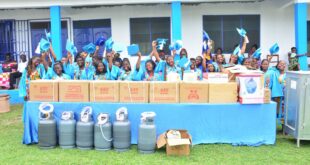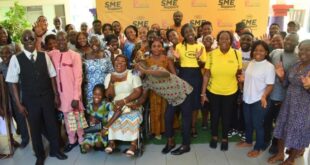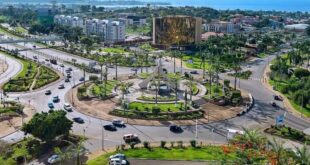
Accra, Ghana – The Gender Studies and Human Rights Documentation Centre (Gender Centre), a Ghanaian women’s rights advocacy organisation, has began a four-day training workshop for selected journalists drawn across the country.
The objective of the training which kicked-off on Monday in Ghana’s capital Accra, seeks to train the journalists on gender and women’s rights advocacy.
It also seeks to train the journalists on how to adopt gender sensitive approaches whenever they are reporting on issues of violence against women and girls so as to drum home the right message to potential perpetrators to desist from such acts of dehumanisation.
According to the United Nations Women in a report in 2012, recent estimates of the prevalence and incidents of violence against women and girls in Ghana indicate a high occurrence with 28% of women reporting at least one form of violence in the past year and 45% reporting prevalence of lifetime violence.
It is believed that if these continuing violent behaviour against women and girls are not curbed through evidence-based intervention would result in far reaching consequences for not only the individual, but the family, community and society as a whole.
In view of this, Programmes Director of the Gender Centre, Mrs Deborah Tayo Akakpo, urged Ghanaian journalists to engage in activists form of journalism by a while longer on gender violence stories in order to elicit the necessary support from all levels of society including the state.
“Over time, we have seen many journalists sensationalise gender-based violence related stories. The sort of words they use to describe acts of violence perpetrated against women and girls makes the story lose its essence and die off within a short period after it broke.
“But we want journalists to be able to understand the dangers and consequences associated with gender-based violence. We want them to understand the various laws and legislations that are there to protect women and girls who are mostly victims of gender-based violence. When journalists understand these things and they are reporting, they’re able to tackle all angles of such stories because they really appreciate what victims are going through and therefore wouldn’t merely sensationalise the stories”, she told Savannah News’ Chief Editor who is also attending the ongoing training sponsored by the African Women Development Fund.
The 17 participants who are from the Greater Accra, Eastern, Western, Northern and Upper East Regions of Ghana would be taken through topics such as police procedures in responding to gender-based violence, the domestic violence act, women’s right under Ghana’s 1992 constitution, international human rights and the convention on the elimination of all forms of discrimination among others.
The workshop is part of the implementation of the Gender Centre’s Community-based Action Teams (COMBAT) project. COMBAT is a rural response strategy which aims to reduce violence against women and girls in Ghana particularly in rural communities, and protect women’s rights through state and community-based structures. The intervention uses COMBAT members to influence change in community attitudes, behaviours and norms that drive gender inequality and which perpetuate violence against women and girls.
By SavannahNewsOnline.Com/Joseph Ziem
 Savannah News Online Reporting Only What Matters Most
Savannah News Online Reporting Only What Matters Most



